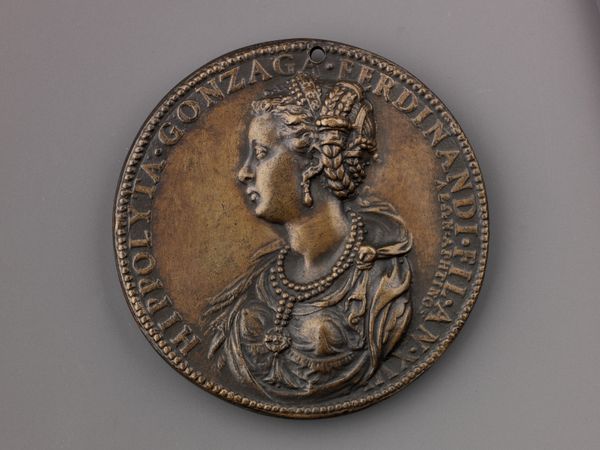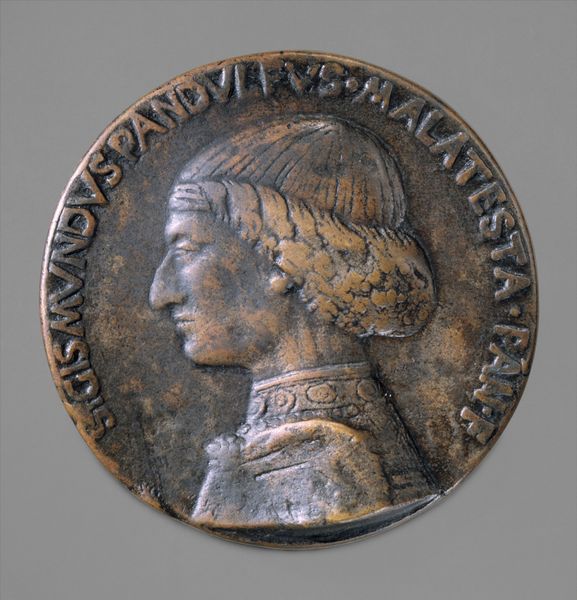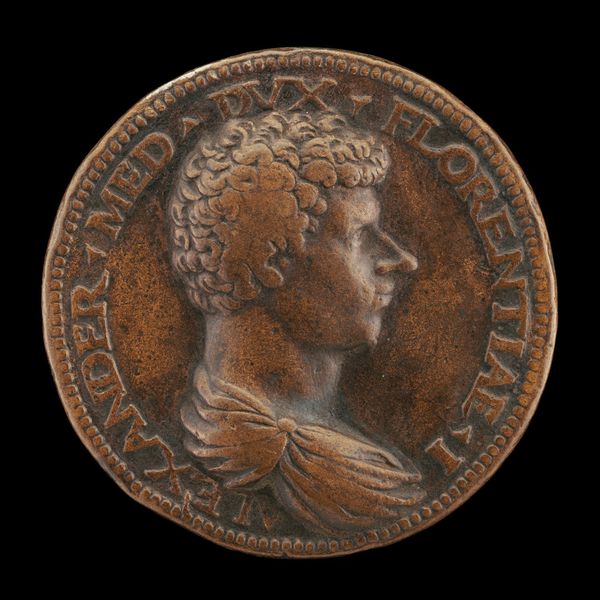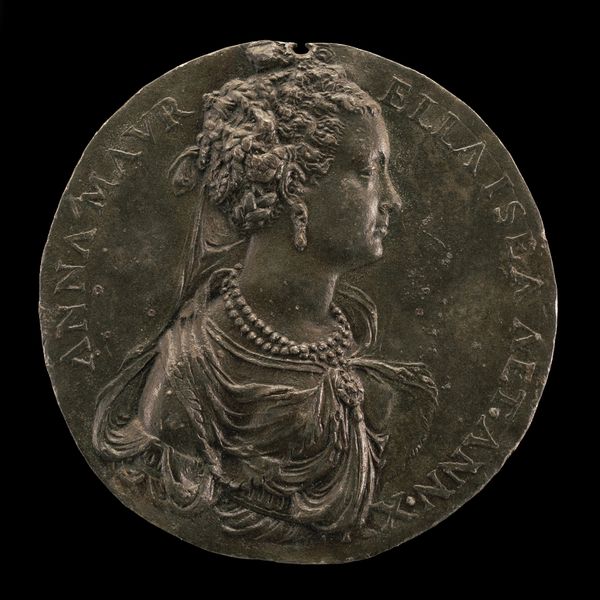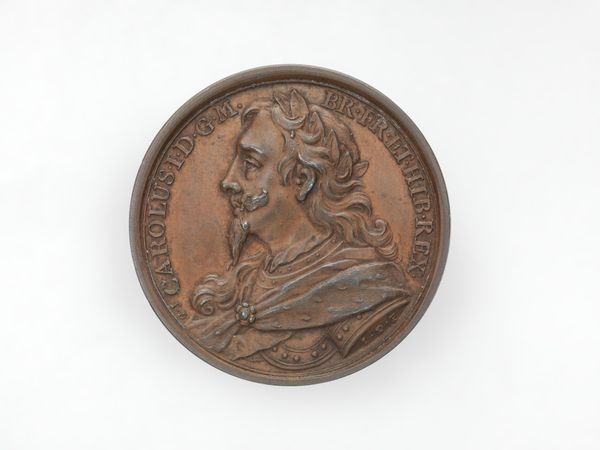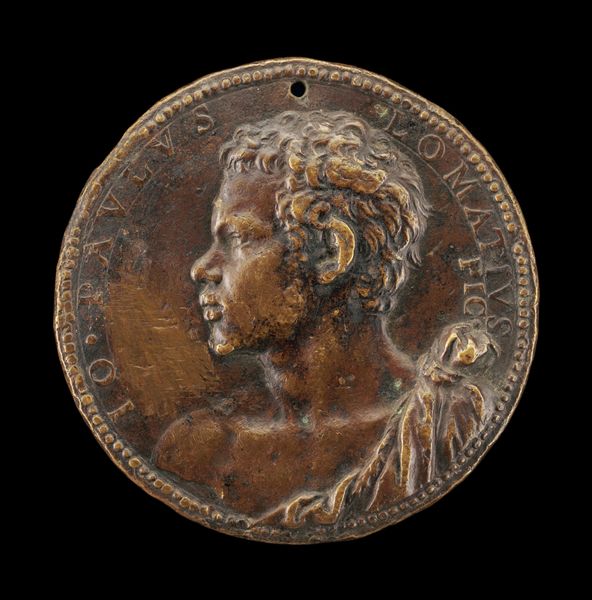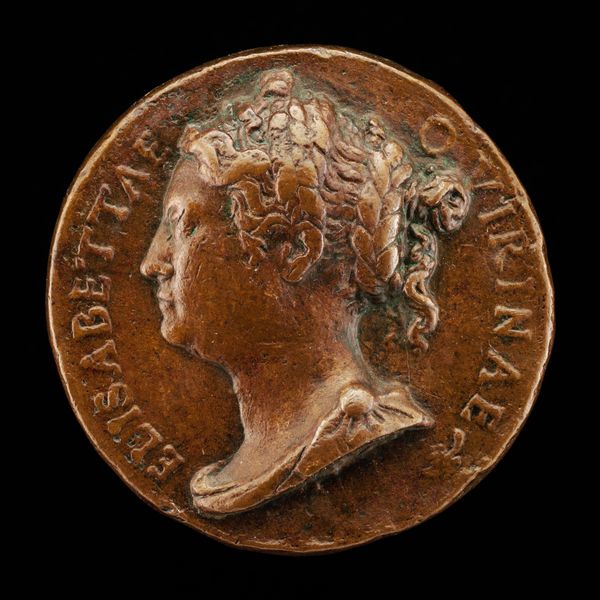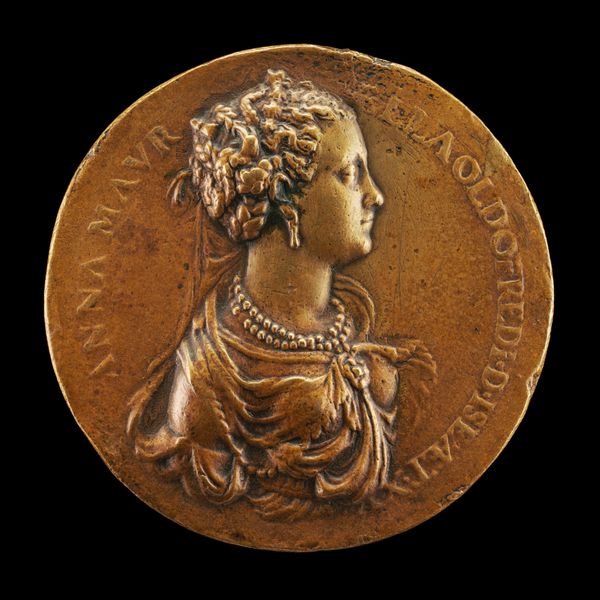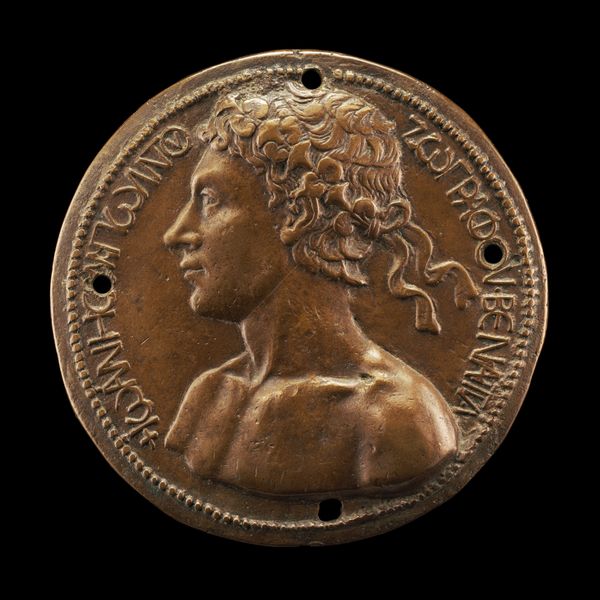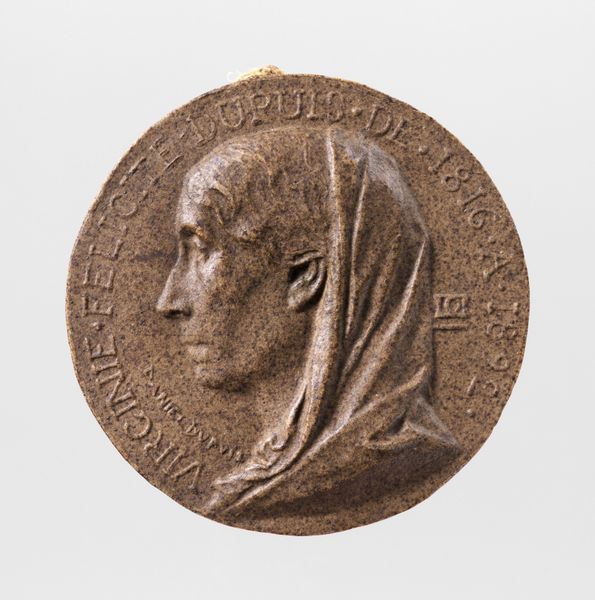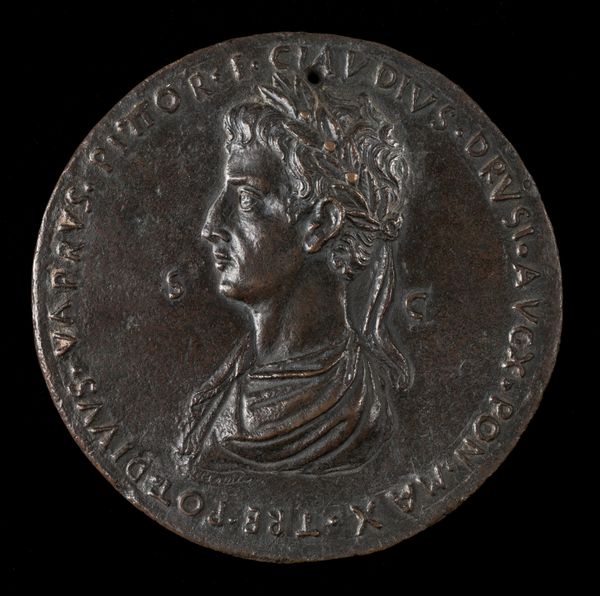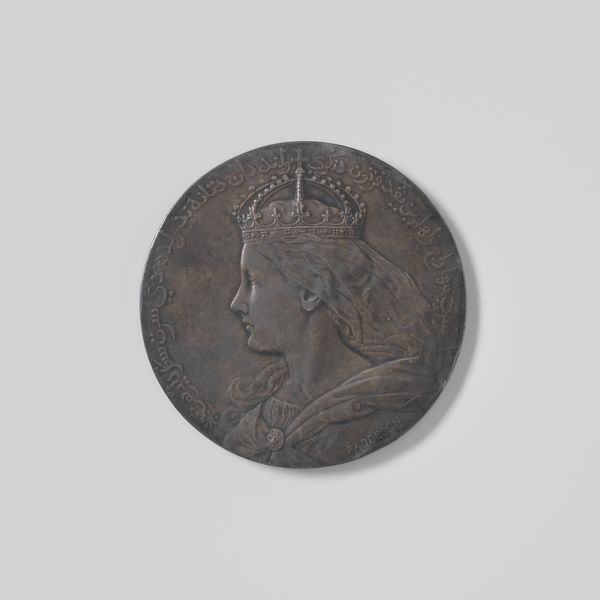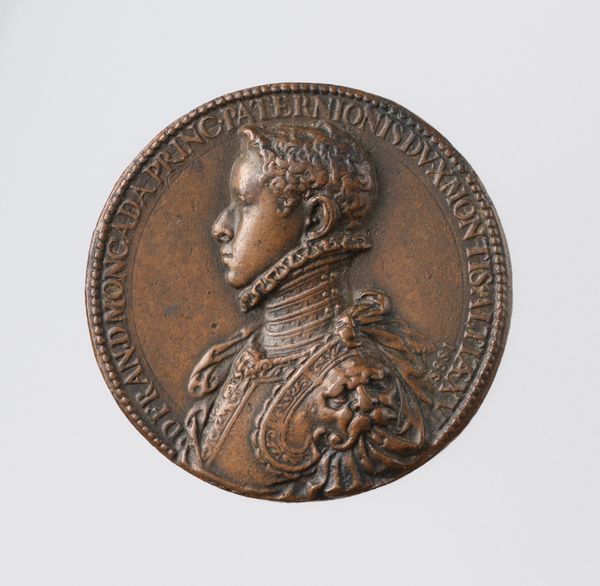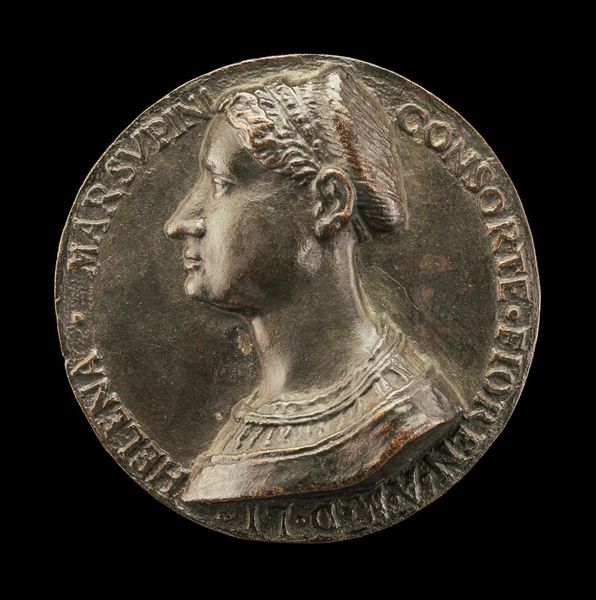
Portrait medal of Dido, Queen of Carthage (obverse); A View of Carthage (reverse) 1545 - 1555
0:00
0:00
#
portrait
#
medal
#
3d sculpting
#
sculpture
#
sculptural image
#
unrealistic statue
#
portrait head and shoulder
#
sculpting
#
mid-section and head portrait
#
men
#
watercolour illustration
#
watercolor
#
profile
#
statue
Dimensions: Diam. 4.2 cm, wt. 33.95 g.
Copyright: Public Domain
Editor: Here we have Alessandro Cesati’s bronze medal, created between 1545 and 1555, featuring Dido, Queen of Carthage. It's so small, yet so detailed. The portrait has this incredible texture... what are your thoughts on how it speaks to us visually? Curator: Notice the composition, meticulously crafted to generate an allegory through pure form. Dido's laurel wreath, sharply contrasted with the minute textural rendering of her hair, operates as a visual signifier of virtue and triumph. What structural principles do you observe relating the obverse to the reverse of the medal? Editor: Well, on the reverse, the depiction of Carthage seems almost secondary in its level of detail. Perhaps to emphasize Dido as the primary subject? Curator: Precisely! This visual hierarchy constructs meaning. The landscape functions merely as a backdrop, thereby accentuating Dido's individual power and the idealized structure of her profile, devoid of naturalistic imperfections. Consider the implications of choosing bronze. How might its material properties inform your understanding of the medal’s message? Editor: I guess the use of bronze lends a sense of permanence and authority. It definitely gives the piece weight, literally and figuratively. The texture reminds me of ancient Greek sculptures... Curator: An insightful observation. This interplay with classical form speaks to Renaissance ideals of civic virtue and leadership through the manipulation of classical signifiers and formal balance. Note the careful circular design and controlled relief. Editor: I never would have noticed the symbolism so deeply. Seeing how the material and structure contribute so much to the piece makes me appreciate how carefully planned every part of it is. Curator: Indeed. Recognizing these components allows for a fuller comprehension of Cesati's formal achievement and symbolic intentions, enriching our engagement.
Comments
No comments
Be the first to comment and join the conversation on the ultimate creative platform.
